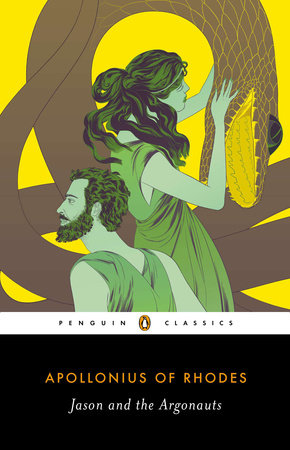
Jason and the Argonauts
Apollonius of Rhodes; Translated by Aaron Poochigian; Introduction and Notes by Benjamin Acosta-Hughes
Paperback
October 28, 2014 | ISBN 9780143106869
AmazonBarnes & NobleBooks A MillionBookshop.orgHudson BooksellersPowell'sTargetWalmart
Ebook
October 28, 2014 | ISBN 9781101616802
AmazonApple BooksBarnes & NobleBooks A MillionGoogle Play StoreKobo
About the Book
Now in a riveting new verse translation, Jason and the Argonauts (also known as the Argonautica) is the only surviving full account of Jason’s voyage on the Argo in quest of the Golden Fleece aided by the sorceress princess Medea. Written in the third century B.C., this epic story of one of the most beloved heroes of Greek mythology, with its combination of the fantastical and the real, its engagement with traditions of science, astronomy and medicine, winged heroes, and a magical vessel that speaks, is truly without parallel in classical or contemporary Greek literature and is now available in an accessible and engaging translation.
For more than seventy years, Penguin has been the leading publisher of classic literature in the English-speaking world. With more than 1,700 titles, Penguin Classics represents a global bookshelf of the best works throughout history and across genres and disciplines. Readers trust the series to provide authoritative texts enhanced by introductions and notes by distinguished scholars and contemporary authors, as well as up-to-date translations by award-winning translators.


